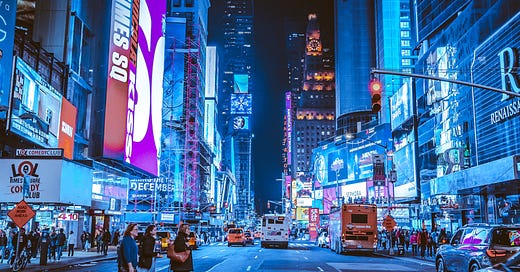Critical Theory, CRT and critical justice come with immense cultural pressure. The battle lines have been drawn. We can fully embrace the worldview, its mission, and its tactics. If we don’t, we are evil, racist, patriarchal bigots. No compromise. Either you’re an antiracist or you’re a racist. Either you're an oppressor or you’re an ally. Either you’re oppressed or you’re complicit in, benefiting from, supporting, maintaining, legitimizing, or failing to criticize oppression in all its forms. This worldview demands full and unquestioned acceptance.
The world is full of FUD: Fear. Uncertainty. Doubt. We’re often uncertain about outcomes. We doubt if things are going to work out, and we’re often afraid of the things we can’t control. But humans are also social beings. Regardless of our level of introversion or extroversion, we want cultural approval. We want to be accepted by the people that we value. Most of the things we do and say are done so that we are “in” with the right group. The reason we buy the products we buy, wear the clothes we wear, drive the car we drive and listen to the music we listen to is so that we can be in the “right” group. Some people refuse to drive minivans because they don’t want to be associated with the type of person that drives minivans. Advertising and marketing for all the products we buy and services we use is geared toward letting us know what groups we should seek to belong to.
The food in advertisements always looks better than the real thing. There’s an entire industry around advertising food. Food stylists are hired to make food look good for ads. Fruit in commercials looks shiny, but it’s never that way when we take it home. That’s because food stylists will spray fruits and vegetables with hairspray or deodorant to give them a shine. The best syrup is the kind in the pictures. It never seems to absorb all the way into the pancakes like the syrup at restaurants. That’s because food stylists use motor oil instead of maple syrup, as well as spraying the pancakes with a water repellent that prevents them from absorbing liquid.
In the real world, cereal soaks up milk and sinks to the bottom. There’s an easy fix for that in the ad world. Replace the milk with white glue, and the cereal will stay put. Rotisserie chicken ads don’t show fully cooked chicken. Raw chicken is cooked for a few seconds, then painted and stuffed with paper towels to increase volume. Burgers and steak aren’t cooked; they are seared with a blow torch and grill marks are added with shoe polish. Cardboard is used to separate cake layers. Mashed potatoes often play the role of ice cream. Soda bubbles are caused by antacids, and tweezers place sesame seeds on buns ever so carefully.
In advertising, it doesn’t matter if something is good; it only matters if it looks good.
Advertising reflects the culture we live in. We can often be more interested in our reputation than in our character. A lot of people focus on the appearance of real rather than realness itself. We claim to be individuals, to think for ourselves, but we embrace things that destroy our individuality.
Christians are no different. We buy books, go to conferences, and align with networks for the purpose of being in the room with certain people. Young church leaders often see leadership positions as career moves. The Church has become a force in culture itself. Some norms within the Church are like food advertisements. It looks good, but don’t get too close. And don’t take a bite! It might be made of plastic.
Considering this cultural conflict, the easiest option for those of us who follow Jesus is to nod our heads and submit to the atmosphere around us. We have an option to become cultural thermometers. Thermometers don’t cause conflict, and they don’t work that hard. They passively respond to ambient temperatures. But we also have another option: to become cultural thermostats. Thermostats have to work. They cause conflict. They’re not passive. They actively change the temperature of the room they are in.
Critical Theory tells us that everything must be destroyed and dismantled so that we can end oppression and start over. The Kingdom doesn’t tell us to maintain the status quo either. It shows us that there must be a reckoning. The Kingdom has always been counterculture. The Kingdom worldview is confrontational to human defaults. It always has been and always will be. And those who become citizens of the Kingdom will frequently find themselves estranged from culture.
If we’re going to embrace this worldview, it will cost us cultural acceptance. For Jesus, that is a worthy price.
Then Jesus said to his disciples, “If any of you wants to be my follower, you must give up your own way, take up your cross, and follow me. If you try to hang on to your life, you will lose it. But if you give up your life for my sake, you will save it. And what do you benefit if you gain the whole world but lose your own soul? Is anything worth more than your soul? For the Son of Man will come with his angels in the glory of his Father and will judge all people according to their deeds.” // Matthew 16:24-27
We are asked to relinquish our humanity. Relinquish our earthly citizenship. Embrace a new life in the Kingdom. There’s an open secret to this worldview. The Gospel of Jesus is the most attractive thing on the planet. If we can live out a Kingdom worldview, we create a new world. A world that not only looks good, but it feels good and tastes good too. A world where the experience is even better than the commercial.



